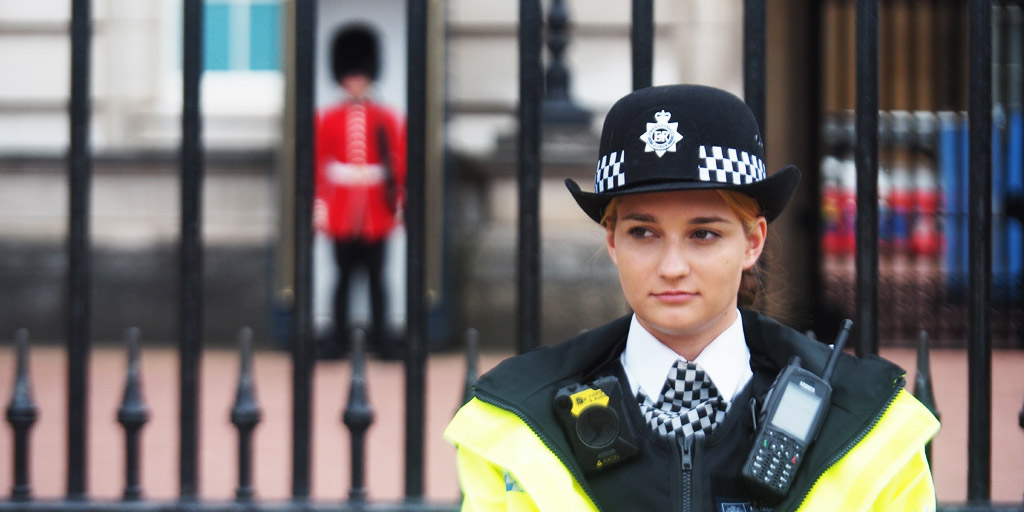
How To Become A Police Officer – Careers Guide
If you’re ready to protect and serve the public, you could make your area a safer place to be as a police officer.
Police Careers: What’s Involved
Getting Into Police Careers
It’s a police officer’s job to protect the public and keep the peace. Your role in the community is to help prevent crime and uphold the law. As the Metropolitan Police founder Sir Robert Peel said, “arresting a lot of people doesn’t make you the best police force. Having the least amount of crime makes you the best”.
Can You Make Good Decisions Quickly?
Every day will be different, and as a police officer you’ll often be called on to make good decisions as soon as an incident has occurred. With your training and good communication skills you’ll be a reassuring presence on the streets, and help make a difference to crime levels in the community.
How Much Money Can You Earn As a Police Officer?
These LMI Job Trends give you a sneak peek of how much you could earn starting out for this career, and how much your salary could grow with experience.
Average Salary For Police Jobs
Recent labour market information says you can earn on average between £20,000 and £60,000 a year as a police officer in the UK.
Your starting salary can vary because of factors like level of experience, training, or location. Your salary as a police officer will increase over time as you build skills, knowledge and experience.
Skills You Need To Become A Police Officer
Useful Skills To Put On Your CV:
- Good communication skills to be able to reassure and inform members of the community
- Self-management skills – you’ll use your training to display initiative and make wise decisions quickly
- Self-presentation skills – you’ll have confidence, courage and diplomacy, and when you put on the uniform you are an ambassador for the law being a force for good
- Problem solving skills to help you stay calm and find the best solutions under pressure
- Teamworking skills – team spirit and good communication between team members is vital in the force.
TOP TIP: It helps if you are able to stay calm under pressure. When all about you are losing their heads, you need to keep yours. Your training will help.
How Do You Get These Skills?
Vocational qualifications and work experience will help you build these skills over time.
Build Your Skills With the FREE Young Professional Programme
What Qualifications & Training Do You Need For Police Officer Careers?
Application requirements
Different police forces may have different academic requirements. However, to apply for the job of a police officer you will need to:
- Be 18 or over
- Be allowed by law to live and work in the UK
- Pass security and background checks
- Give details of any previous convictions.
School, college and training
You can check with your local police force to see what academic requirements may be involved in the role you apply for. Sometimes no formal qualifications are needed, but as a new starter you may get the opportunity to complete an apprenticeship or practical degree to fully enter the profession. Jobs as police officers are available to school leavers aged 18 or over, holders of an HND qualification and graduates alike.
Some relevant qualifications include:
- BTEC First (or National) Diploma in Public Services
- Level 2 qualification in Public Services
University degrees and graduates
If you already have a degree, you can apply for the Police Now graduate leadership development programme.
Relevant foundation degrees, degrees and courses you can do include:
- Public services
- Police studies
- Policing
- Police sciences
- Emergency services
- Criminology
- Criminal justice
The selection process
The recruitment process to become a police officer typically involves these steps: 1. Fill in an application form and apply 2. Attend an assessment day and interview(s) 3. Health and reference checks
On your assessment day you may be asked to do a written exercise, numbers ability test, verbal ability test, an interactive exercise and a competency-based interview. In this way, you can prove you have core skills like communication and problem solving even if you don’t have previous policing experience. You can check with each local force in the UK to see what their requirements and recruitment processes are.
Criminal record checks
You do have to give details of any criminal convictions or cautions. However, each application is considered on an individual basis and a criminal record will not always result in your application being rejected. If you don’t disclose any convictions or cautions you have, your application will be rejected.
What does student officer training involve?
When you successfully apply to be a police officer, your student officer training will be a mix of studying in a classroom environment and getting experience of working in the community in uniform. Training usually takes around two years, covering topics like:
- Interview techniques
- Criminal law, police powers and police paperwork
- Advance driving
- First aid
- Self-defence
- Community needs and issues
The force you are with may also offer you the opportunity to study for an higher education qualification or foundation degree once you’ve completed student officer training.
Career Progression
- Criminal investigation, anti-fraud or road traffic
- Firearms or drugs
- Counter-terrorism
- Mounted policing or dog handling
- Underwater search or air support (e.g. helicopters)
If you decide to specialise in criminal investigation with the CID (Criminal Investigation Department) then you’ll have ‘detective’ added to your job title, e.g. detective sergeant.
What Work Experience Do You Need For Police Officer Jobs?
Work Experience Tips
It could help your application if you can show you have experience of working with people and communicating with members of the community. Examples of relevant work experience include:
- Working with people in the community, e.g. with local youth groups or doing sports coaching
- Volunteering in an organisation where you can display useful skills like self-management and teamwork
- Volunteering in a policing capacity (e.g. joining the Volunteer Police Cadets).
Volunteering Tips
The UK police force has lots of ways to volunteer with the police for you to consider.
As an example, you could join the volunteer police cadets. The volunteer police cadets (VPC) are groups of young people that come together with police officers to learn about policing in every London Borough.
What Does A Police Officer Do?
Where could you work?
You can work with a regional police force (e.g. for the area you live in) or for forces which don’t depend on location, including:
- British Transport Police
- Civil Nuclear Constabulary
- Ministry of Defence Police
Your job could see you patrolling the streets on foot, working in a police station or patrolling by car. You could be working with specialised departments like community support officers or crime scene/traffic accident investigators. The departments all need to work together to help reduce crime and increase public safety.
Example daily job responsibilities
- Responding to emergency and non-emergency calls for help from the public
- Being present to help deal with anti-social behaviour such as violence, theft
- Investigating crimes, missing person enquiries and domestic or neighbour disputes
- Interviewing suspects and taking statements from witnesses
- Making arrests
- Giving evidence in court
- Reassuring the public and advising them on crime prevention and personal safety
- Crowd control at big public events
- Community work with, for example, schools and local community groups
- Promoting respect for all people in relation to race, diversity and human rights.
How To Find Police Officer Jobs: Next Steps
To find jobs for young people in this role, search on jobs boards for early career roles with these words in the title:
- Police officer jobs
- Policing apprenticeships
- Police constable apprenticeships
- Police volunteering
- Special constable roles
- Police community support officer jobs (PCSO jobs)
These websites might be able to help you find policing experience or a police role that’s a good fit for you:
Protective Services Career Tips & Opportunities
Protective Services Career Guides
View job descriptions with average UK salary, useful qualifications and a variety of routes into this career.
See All Our Youth-Friendly Employers

























YES! I Want More Free Careers Help...
So what are you waiting for? Grab your future.























